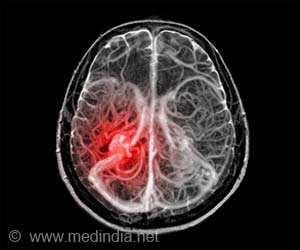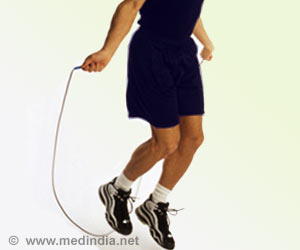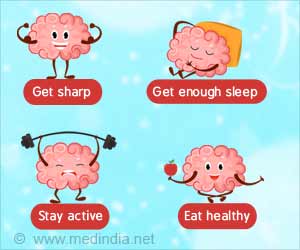Is it possible to prevent secondary stroke? Yes, health intervention on mobile phones can lead to better lifestyle and help prevent secondary stroke.

The study was conducted in 31 stroke centres across the country.
‘Mobile-based health intervention that provides SMS text messages, health education videos and stroke prevention workbook can help patients lead to better lifestyle and help prevent secondary stroke.’
Read More..




Read More..
Advertisement
Prevalence of Stroke in India
Stroke is one of the leading causes of death and disability in India. After a stroke, about 15 to 20 per cent of the patients develop another stroke (recurrence). Discontinuing medicines, lack of control over blood pressure, blood sugar, continued smoking, alcohol intake and following unhealthy food habits are the main reasons for recurrence.Advertisement
Types of Stroke
There are two types of stroke - ischemic, when there is a blockage in one of the brain arteries; and brain hemorrhage, when there is rupture and leakage of one of the arteries which supplies blood to the brain. High blood pressure is the number one cause of ischemic and hemorrhagic strokes.The trial was conducted by SPRINT-India (Secondary Prevention by Structured Semi-Interactive Stroke Prevention Package) under ICMR's Indian Stroke Clinical Trial Network (INSTRuCT) of stroke-ready centres in India, one of its kind in developing countries and the fourth government-supported network around the world.
Advertisement
Health Intervention to Prevent Secondary Stroke
The trial's intervention was a package composed of SMS text messages, health education videos and stroke prevention workbook for patients. The messages focused on control of blood sugar, blood pressure, cholesterol, improve physical activity, eating healthy and not missing taking medicines to prevent stroke. The awareness material was systematically developed in 12 different regional languages.The patients in the control group received standard care whereas those in the intervention arm received awareness at weekly intervals to promote healthy living and adherence to medicines.
A total of 4,298 patients were randomly allocated to the intervention arm (2,148) and control arm (2,150). 1,502 patients in intervention arm and 1536 patients in the control arm completed one-year followup. SPRINT India trial used complex behavioral interventions to reduce recurrence of stroke. The results of the trial revealed that structured semi-interactive stroke prevention package improved lifestyle behavioral factors and adherence to medication, which might have long-term benefits.
The trial went a step further than contemporary trials in assessing the effect on endpoints such as recurrence of cardiovascular events and deaths. However, the follow up period was short to show any differences between control and intervention group. The results of the trial were published in the Lancet Global Health journal.
Dr. Jeyaraj D. Pandian, Professor of Neurology and Principal, Christian Medical College, Ludhiana and Principal Investigator of the clinical coordinating centre, said that the proportion of patients who stopped smoking (83 percent) and alcohol (85 percent) improved in the intervention group as compared to control group (78 percent and 75 percent respectively).
"Adherence to medications was also better in intervention arm (94 percent) as compared to control arm (89 percent). The events like stroke, heart attack and death did not differ between the two groups (5.5 percent vs 4.9 percent) at one year follow up. This may be because the follow up period was too short or study centres were stroke-ready centres, which were already providing good quality of care to stroke patients."
"SPRINT study is the first trial in India (and perhaps globally) to try to assess the role of a health intervention in secondary prevention of stroke at such a large scale. It provides hope in improving lifestyle and medical complications leveraging technology in a resource-constrained setup.
In Phase 2 which started in September 2022, four more stroke trials, which are very relevant to the country, have been initiated by ICMR. We would get answers to important treatments for stroke in the coming years," said Dr. Meenakshi Sharma Scientist-G, Noncommunicable Diseases Division, ICMR.
Source-IANS















